Opulent, civilized, and industrious nations, are greater consumers than poor ones, because they are infinitely greater producers.
Jean-Baptiste Say, A Treatise On Political Economy (Fourth Edition, 1832), Book III, “On Consumption,” Chapter 1.
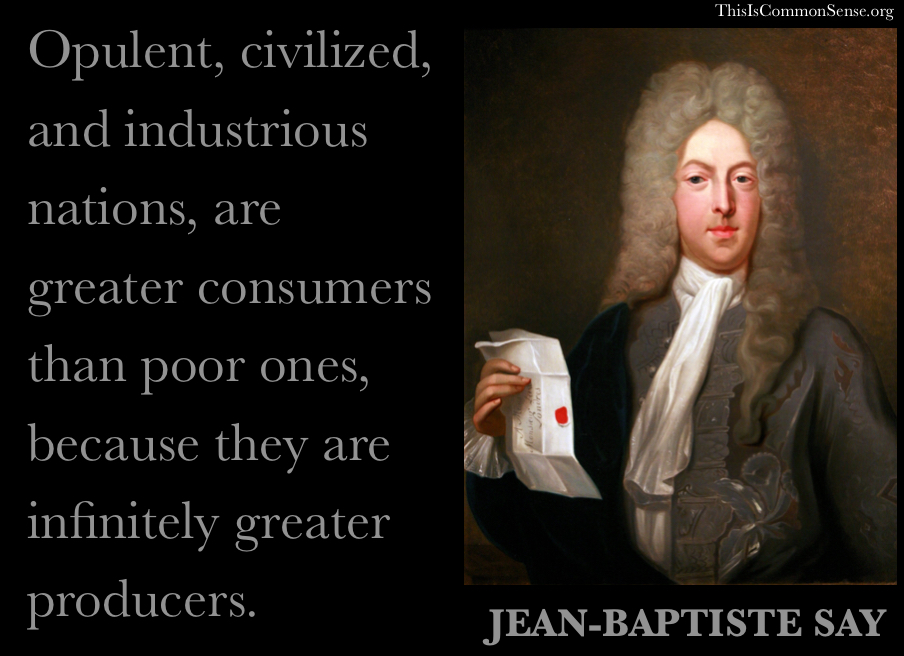

Opulent, civilized, and industrious nations, are greater consumers than poor ones, because they are infinitely greater producers.
Jean-Baptiste Say, A Treatise On Political Economy (Fourth Edition, 1832), Book III, “On Consumption,” Chapter 1.
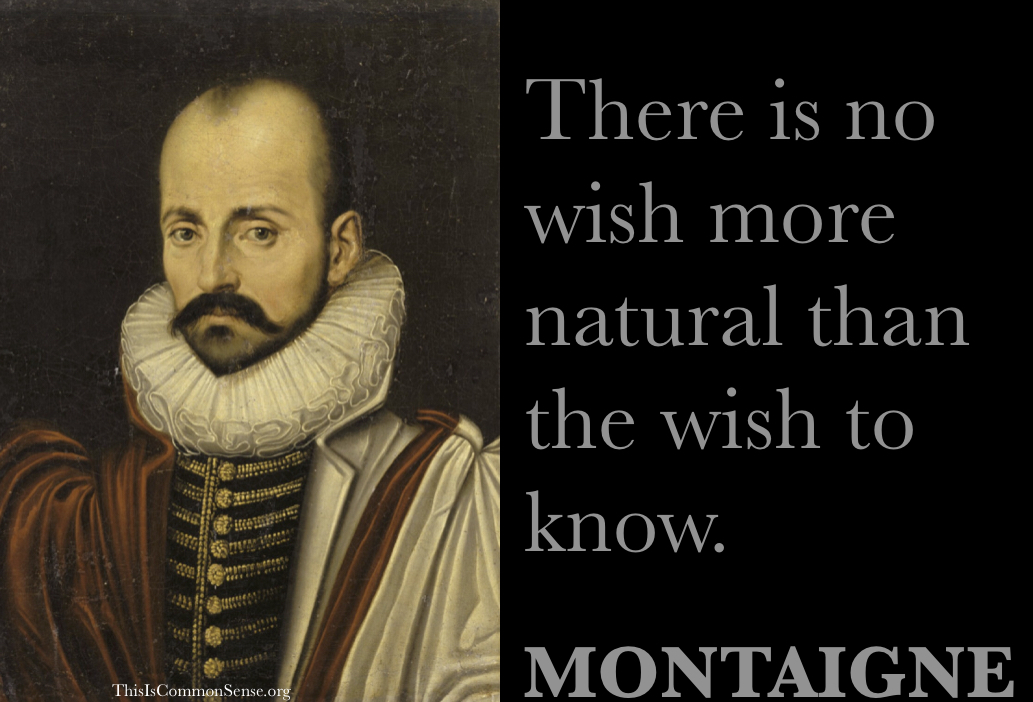
There is no wish more natural than the wish to know.
Michel de Montaigne, Essais, Book III, Ch. 13 (1595).
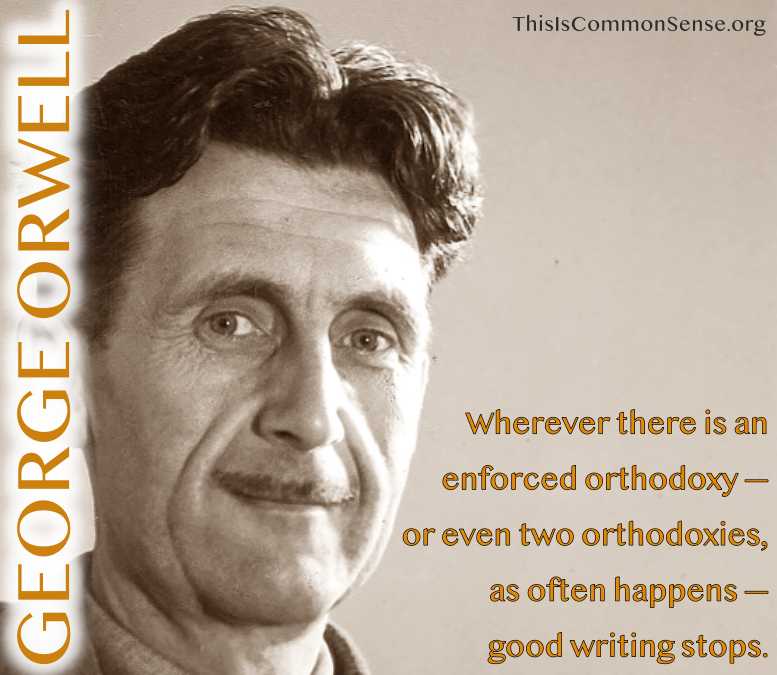
Wherever there is an enforced orthodoxy — or even two orthodoxies, as often happens — good writing stops. This was well illustrated by the Spanish civil war. To many English intellectuals the war was a deeply moving experience, but not an experience about which they could write sincerely. There were only two things that you were allowed to say, and both of them were palpable lies: as a result, the war produced acres of print but almost nothing worth reading.
George Orwell, “The Prevention of Literature,” Polemic (January 1946).
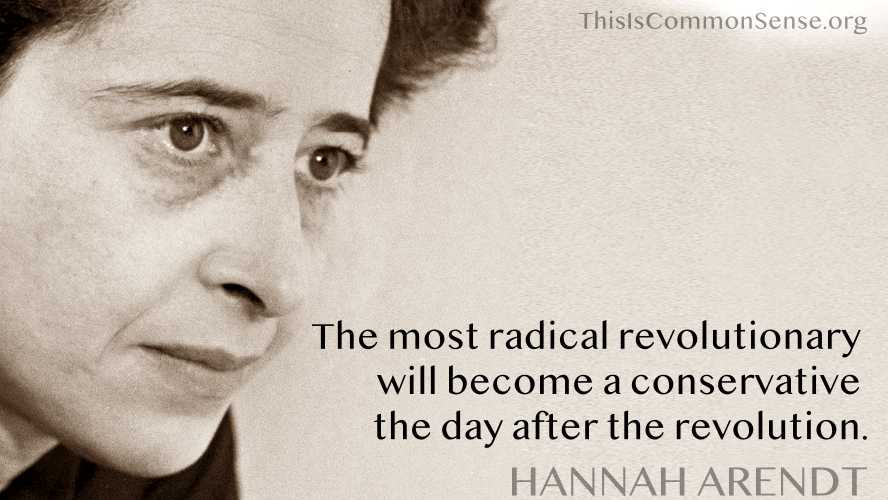
The most radical revolutionary will become a conservative the day after the revolution.
Hannah Arendt, The New Yorker (September 12, 1970).
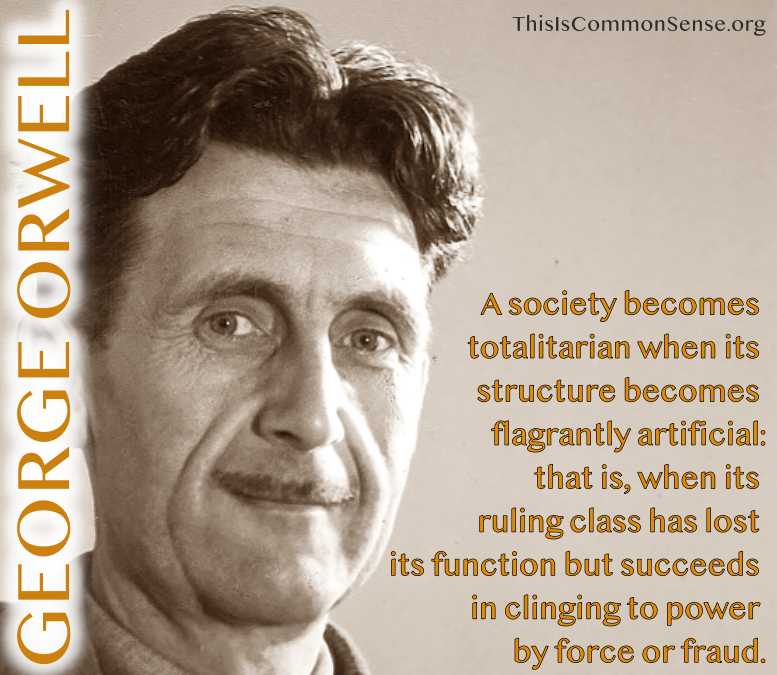
A society becomes totalitarian when its structure becomes flagrantly artificial: that is, when its ruling class has lost its function but succeeds in clinging to power by force or fraud.
George Orwell, “The Prevention of Literature,” Polemic (January 1946).
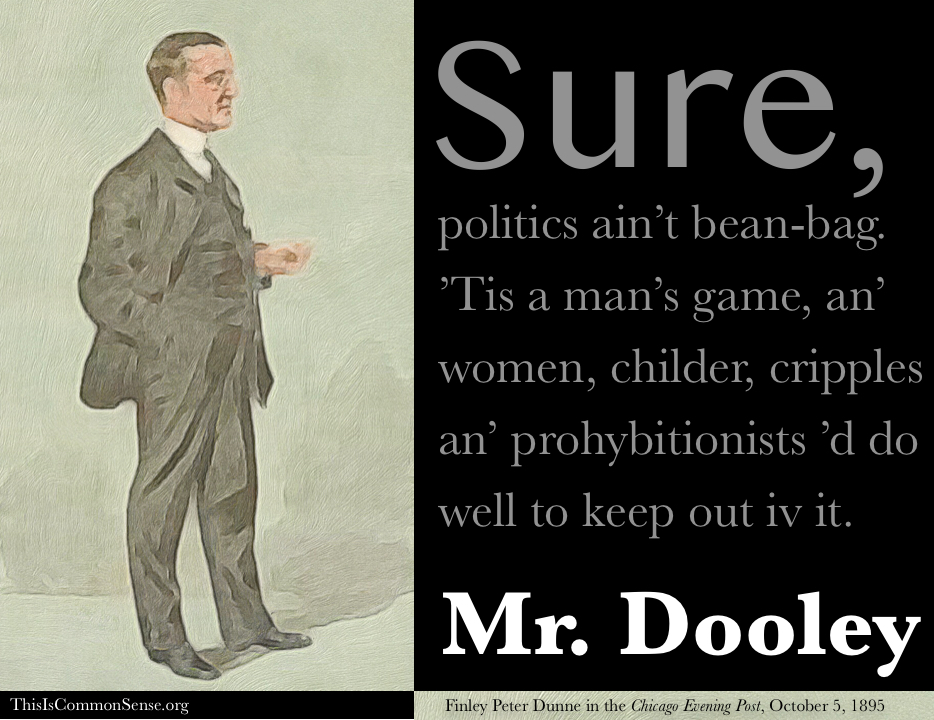
Sure, politics ain’t bean-bag. ’Tis a man’s game, an’ women, childer, cripples an’ prohybitionists ’d do well to keep out iv it.
Finley Peter Dunne writing as “Mr. Dooley,” Chicago Evening Post, October 5, 1895.